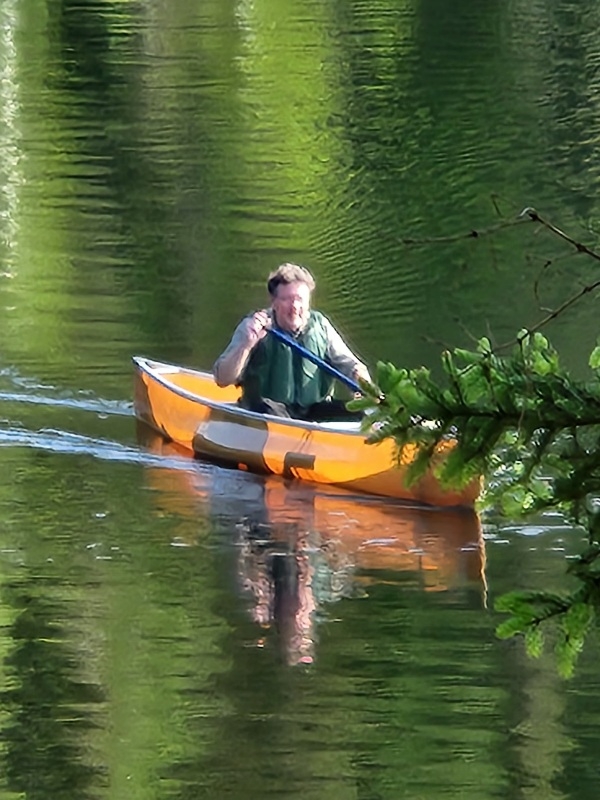 |
| The Sleeping Giant as seen from Hillcrest Park. To its right are The Welcome Islands and in the distance, Isle Royale |
I would suggest that if you live in Canada. If you are from the United States, Duluth might be a better choice.
Here is my reasoning: summers are going to get progressively hotter. Places where you could cool off in the shade or just by opening the windows in the house already demand air conditioning the entire summer. Eventually you are going to experience a power failure during a heat wave and that could be fatal in the sweltering heat.
Thunder Bay and Duluth are located on the shore of one of the world's coldest water bodies. When the wind blows from the lake onto shore it is like a refrigerator. It provides natural air conditioning. And if the heat is unbearable and the winds are not obliging, get in the lake itself. At this point it has a summer temperature of 4 C.
Also, it has plenty of water to drink. That is going to be a factor in the future too. Lake Superior is more than 1,000 feet deep. It will take a long time for it to evaporate.
I had been thinking about this in the context of what we can do personally about climate change when I saw this article on Reuters News Service about people moving to Duluth. I love the slogan: Duluth -- Not as Cold as You Might Think.
Lake Superior could become a haven for climate migrants.
Thunder Bay has a lot going for it. It is a city of 109,000 people. It is a major harbour, has light industry, a university and a college, a pulp and paper mill and other forest product mills. There is also an agriculture sector. At present this is mostly dairy, hay and potatoes but with longer growing seasons ahead we can expect diversification.
It has a thriving music and theater scene, probably a hundred restaurants and a couple dozen hotels and motels. Its Community Auditorium is a premier site for concerts.
Thunder Bay also has something that many people don't think about -- a large, bustling airport. It is the third-busiest airport in Ontario behind Toronto and Ottawa.
The average house here sells in the $300,000 + range. That is about one-third what houses cost in the Toronto region. Housing is in short supply, though. There is a move afoot to build 6,500 more homes in the decade ahead. Some of that will be to accommodate the thousands of mining jobs that are expected in the near future. These would come from new mines for minerals used in electric auto batteries. A few mines are nearing completion and more are likely on the way.
Finally, Thunder Bay is known for its spectacular natural wonders. The Sleeping Giant land form is right across the bay from the city. There are square-topped mountains, deep canyons and waterfalls. Ski hills and cross-country ski trails, sailing, boating and fishing are right at your doorstep.
Kakabeka Falls, not far from our home in Nolalu, is the second highest falls in Ontario. The other is Niagara.
Thunder Bay has another thing that most people don't think about: it is surrounded primarily by hardwood forests. They are not as susceptible to forest fires.
Food for thought.
 |
| Looking south you see the square top mountain of Pie Island and Mount McKay at the right |






















